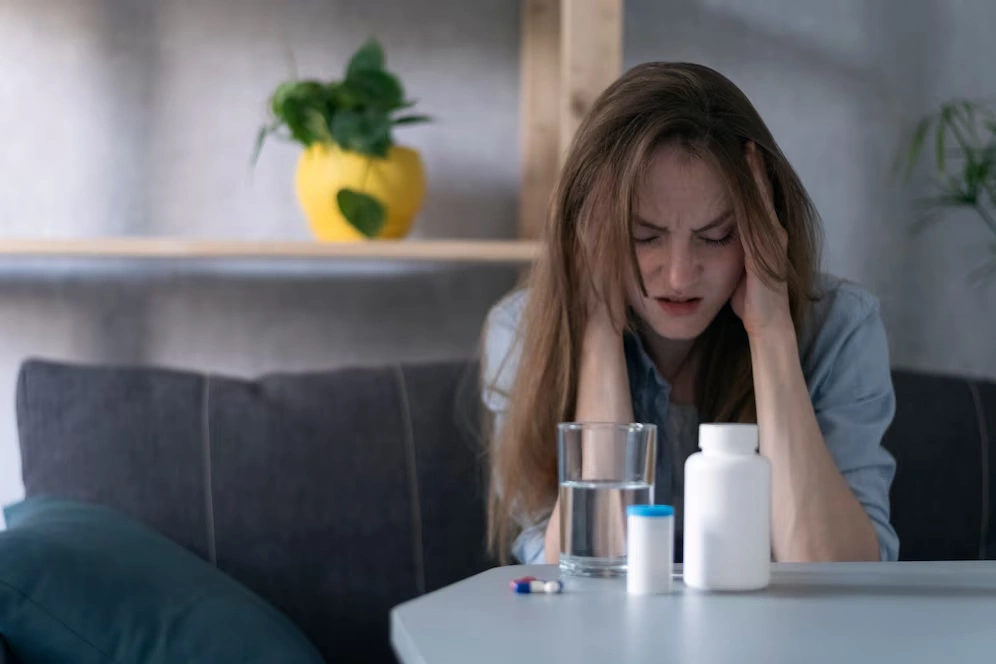Tips for Taking Zopiclone Safely and Avoiding Risks

Zopiclone is a prescription drug mainly prescribed to treat short-term insomnia and other sleep disorders. Zopiclone is classified under the category of sedative-hypnotics, which acts by interfering with the central nervous system, thereby inducing sleep. However, though it can be a valuable treatment for people who have problems sleeping, proper caution should be exercised regarding the use of Zopiclone because of its risk for abuse, side effects, and physical dependence. In this ultimate guide, we will explore essential tips in taking Zopiclone safely as well as the necessary precautions to minimize risks.
What is Zopiclone?
Zopiclone is an active pharmaceutical ingredient that is used for treating short-term insomnia. It helps individuals fall asleep faster, sleep longer, and reduces the frequency of awakenings at night. It acts by interacting with gamma-aminobutyric acid receptors in the brain, promoting relaxation and sleepiness. Although it has proven effective in the short term, its use should be under a doctor’s prescription because it has the potential to cause side effects such as drowsiness, dizziness, and even dependence.
Read more: Zopiclone vs. Natural Sleep Aids: Which Works Best for You?
How Does Zopiclone Work?
Zopiclone functions by increasing the levels of GABA, a natural neurotransmitter within the brain to reduce nerve impulses and further promote relaxation. This results in a slowing of the mind, making you relax and, consequently, fall asleep easily. Its prescription is generally for acute treatment of insomnia because it targets patients who either cannot fall asleep or have difficulty maintaining sleep. It should be noted that Zopiclone is not a long-term treatment for chronic sleeping disorders, and it should only be used short term. The duration should usually not be more than 2–4 weeks.
The Risks of Taking Zopiclone
As with many sleep aids, Zopiclone carries with it risks to the individual. Some of these potential risks are as follows:
1. Dependence and Withdrawal
The biggest risk associated with Zopiclone use is physical and psychological dependency. With long-term usage, there may develop a tolerance to the medication, so higher doses are needed to obtain the same sedative effects. This increases the risk of developing dependency on Zopiclone for sleep and withdrawal symptoms that include anxiety, insomnia, and irritability if the drug is suddenly stopped.
2. Side Effects
Common side effects of Zopiclone include drowsiness, dizziness, dry mouth, and metallic taste. Serious side effects include memory problems, confusion, and hallucinations. Long-term use can lead to cognitive impairment and increased risk of falls, especially in the elderly.
3. Accidents and Impaired Function
Zopiclone can cause impaired cognition and motor function and increase your chances of being involved in an accident with effect like driving or operating heavy machinery. You should not engage in activities that call for complete alertness without first learning how the medication will affect you.
4. Drug Interactions
Zopiclone interacts with other drugs, especially other central nervous system depressants, which include alcohol, benzodiazepines, and opioids. Combination of the drug with the above mentioned substances can increase the effect of sedation, a dangerous combination leading to over dosage and even respiratory depression.
Safe Practices for Taking Zopiclone
1. Follow Your Doctor’s Prescription
The most crucial safety tip for taking Zopiclone is to follow your doctor’s prescription and guidelines strictly. Never take more than the prescribed dose, and do not use Zopiclone for longer than recommended. Most doctors will prescribe Zopiclone for a short period, usually 2–4 weeks, and you should avoid using it for longer durations unless advised by your healthcare provider.
Key Points to Remember:
- Take the medication exactly as prescribed.
- Do not increase the dose on your own, even if you feel the medication is not working as effectively.
- Do not take Zopiclone if you have been prescribed another sedative or antidepressant without discussing it with your doctor.
2. Use Zopiclone Only for Short-Term Use
The objective is only to use zopiclone for a short duration, mainly for transient periods of sleep. It is usually because of stress, anxiety, and other lifestyle changes. Using this medicine for an extended period can lead to high dependency and tolerance.
If your insomnia persists after taking Zopiclone for the prescribed period, speak to your doctor about other available treatment options, such as cognitive-behavioral therapy for insomnia (CBT-I), lifestyle changes, or other medications.
3. Take Zopiclone Right Before Bed
Zopiclone is designed to help you fall asleep, so it should be taken immediately before going to bed. Taking the drug too early may lead to unwanted sedation during the day, leaving you feeling groggy and drowsy the next morning.
Additional Tips:
- Ensure you have at least 7–8 hours of sleep time available after taking Zopiclone.
- Avoid taking Zopiclone if you have to wake up early for any important activities.
4. Avoid Alcohol and Other Sedatives
Alcohol and other sedatives such as benzodiazepines and opioid medications can combine with Zopiclone to increase the dose of sedation beyond safe levels, causing severe drowsiness, respiratory depression, or even overdose. Always consult your doctor before using alcohol or combining Zopiclone with any other medication.
5. Be Aware of Drug Interactions
Zopiclone can interact with many drugs, including some antidepressants, antihistamines, and anticonvulsives. It is crucial to report all drugs you are taking, including over-the-counter medications, supplements, and herbal supplements, to your doctor so that he or she can prevent any possible interactions.
Common Drug Interactions to Be Cautious About:
- Benzodiazepines (e.g., Valium, Xanax): Can increase sedation and drowsiness.
- Opioid painkillers (e.g., morphine, oxycodone): May cause respiratory depression.
- Antidepressants (e.g., SSRIs, SNRIs): May intensify side effects like dizziness and confusion.
- Antihistamines (e.g., Benadryl): Can cause excessive drowsiness.
6. Monitor for Side Effects
While taking Zopiclone, be mindful of any side effects. Common side effects include dizziness, headaches, and a metallic taste. Serious side effects, although rare, may include memory problems, hallucinations, or unusual behavior.
If you experience any severe side effects, such as:
- Severe confusion or memory loss
- Unusual thoughts or behavior
- Shortness of breath or chest pain
- Swelling of the face, lips, tongue, or throat
- Difficulty walking or speaking
7. Consult Your Doctor Before Stopping Zopiclone
If you are on Zopiclone for a long period, do not stop its use abruptly because withdrawal symptoms might include anxiety, nausea, and sleep disruption. Your doctor can assist you with tapering of the drug slowly to avoid withdrawal effects.
8. Use Zopiclone with Caution in Special Populations
Some sections of the population should be treated more cautiously to Zopiclone:
- Older Adults: Older adults are much more prone to side effects such as dizziness, confusion, and falls. If you are over 65, your doctor may also prescribe a lower dose or use a different medication.
- Pregnant and Breastfeeding Women: Zopiclone should be avoided whenever possible during pregnancy and breastfeeding, for it can affect the fetal development or be passed to the child through breast milk.
- People with Liver or Kidney Problems: As Zopiclone is metabolized in the liver and excreted through the kidneys, patients with liver or kidney disease may need to be adjusted for dosing.
9. Avoid Driving or Operating Heavy Machinery
Because Zopiclone can impair your cognitive and motor function, you should avoid driving, operating heavy machinery, or performing other activities that require full mental alertness until you know how the drug affects you.
10. Consider Non-Pharmacological Treatments for Insomnia
Although Zopiclone is effective for short-term sleep problems, more attention should be given to non-pharmacologic interventions if your sleep problems persist. Cognitive-behavioral therapy for insomnia (CBT-I) has been proven to be an effective intervention for long-term improvement in sleep without dependence on medications.
Lifestyle changes, such as:
- Maintaining a consistent sleep schedule
- Avoiding caffeine and nicotine close to bedtime
- Engaging in relaxing activities before bed (e.g., reading or meditating)
- Creating a comfortable sleep environment (dark, quiet, and cool room)
Read more: Understanding the Legal Status of Zopiclone in Australia
Conclusion
Zopiclone is very useful for those with sleeping disorders short-term. Its prescription and use need to be taken seriously, however, to prevent risks. Always use Zopiclone according to the prescription, avoid mixing alcohol or sedatives, and take note of possible side effects and interactions. If your insomnia is unrelenting, discuss alternative treatments with your physician





